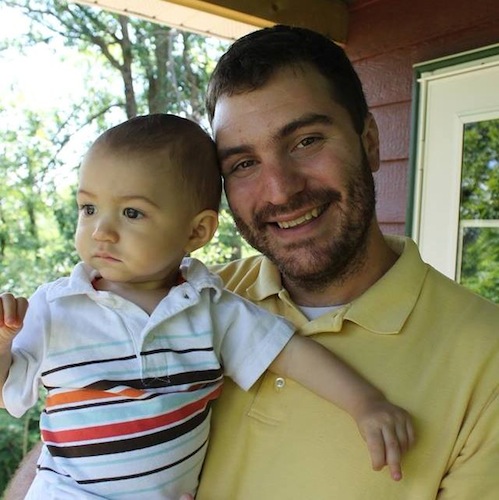My wife, my son and I spent the weekend with my family. Along with my parents, some other relatives came and stayed as well. It was a great time filled with food, laughs and trips down memory lane. Naturally, questions arose about our son and how we speak to him in Spanish. One interesting question I was asked is stated was “What are you going to do when he speaks half English half Spanish sentences?”
This caught me a little off guard. I just immediately responded “We will encourage him and tell him he is the best little talker in the world.” I wasn’t really sure what other kind of answer could possibly be given. It got me thinking though… people who don’t understand bilingualism, well, don’t understand bilingualism. They see it as a ‘problem’ if the child code switches or goes through a transitional phase where they mix up languages; English grammar with Spanish words or vice-a-versa.
The reality is that there is nothing wrong with that.
The follow-up question was along the lines of “You are going to be the only one who understands him.” I can see their point with regards to the communication issues, and perhaps this is a proverbial bridge we will cross, however this is hardly a deterrent from choosing the bilingual lifestyle. Difficulties will most likely present themselves, and these difficulties will lead to new opportunities to learn and grow as a family. Will my English-only parents be confused at times when we are talking as a family or they are trying to talk to my son? Probably. Will it be that big of a deal? No. Frankly, I’m confused about half of the time I’m talking to children anyway.
Our little guy will learn to figure it out. He will grow, develop, and home in on who speaks what language, when and to what degree. In fact, this may happen sooner than later! A recent post of mine talks about how bilingual children start deciding which language is which as early as six or seven months old! This is the beauty of children growing up with two or more languages; they just get it. They learn very quickly what they need to do to be understood. They have to, really, as they don’t have a whole lot of other options!
Has anyone else experienced these types of questions or comments? What was the situation and how did you respond? Comment below and share your experience.
{Photo courtesy of Jeffrey Nelson}


 Jeffrey Nelson blogs about being bilingual, raising bilingual children, and all things bilingual at
Jeffrey Nelson blogs about being bilingual, raising bilingual children, and all things bilingual at 
My daughter is 2 and she knows who to speak which language to. It really is amazing. Sometimes, when she catches me speaking in English, she’ll say “Mami, talk espanol” and I will quickly comply!
Maria,
Kids are very good at knowing who speaks what language! Apparently this is something they figure out pretty early. It’s quite impressive really. I like that your daughter reminds you! That’s great. Hopefully my son will be as into his espanol as your daughter
Jeff
Very early on, our son reacted differently to French speakers than to English speakers, and even at a very young age he refused to speak French to Anglophones and vice-versa. So much so that I have native French friends to whom he has never said a word in French, even when he sees us conversing in that language, because (living in an Anglophone country) their first words to him were in English … so in his head, that’s the language they should be speaking! And we are lucky that he has never code-switched, the languages are totally distinct in his mind.
My responses to concerns about understanding him are either calm and logical (“Well, yes, if he speaks French, although I am sure with a little effort on both sides, family and friends will figure out what he wants … in both languages!”) or (in my off-moments) very sarcastic (“Well if all else fails he can try interpretive East Indian dance.”). Either way, people generally realize that they spoke without thinking things through logically and revise their opinions accordingly.
In fact, research shows that code-switching requires a higher bilingual ability than staying in one language. My daughter is actually trilingual. She speaks English and Spanish at home and goes to a French immersion school. She codes switches between English and Spanish more comfortably (she’s only in 1st grade and has only had 1 yr of actually French instruction), but she has a close friend who is also trilingual like her and I often hear them speak to each other in the 3 languages.
My 4 year old speaks both Spanish and English. My husband does not speak Spanish so I have to work really hard on being consistent and he respects that. It has been a beautiful experience to watch her grow up bilingual. A couple of years ago she would call the moon “moona” and the kitchen “Kitchina” she now knows the correct words and speaks to me in Spanish and my husband in English. I would say she learned how to identify that switch at about two.
Sometimes after a long day at school she comes home and speaks English to me and I say “que?” she giggles and switches to Spanish mode and even then she will sometimes speak half and half. Regardless, I find it adorable and interesting and I know that the older she grows the more she will understand and I’m just a proud momma knowing that she is bilingual.
Just to be clear (because the comments indicate that the commentators have some misunderstanding), children do NOT get confused when learning multiple languages. All children make speech errors when acquiring language. This is true whether they are monolingual or multilingual. So, bilingual children never ‘mix up’ the languages they are acquiring. They just go through normal language development with multiple languages. The end result will be that they have more than one grammar in their heads as adults. Code-switching is when bilingual speakers use different languages in different social situations. This is normal and natural. In fact, monolinguals do the equivalent of code-switching when they use formal vs. informal language in different situations or when they use different dialects in different social groups. Code-switching does not indicate that the multiple languages aren’t distinct in the child’s mind. It simply means that the child recognizes the social function of the languages.
Kevin,
Thanks for your comments. You clearly know what you are talking about.
Hi! I was having a conversation with a colleague the other day about bilingualism. His wife is Japanese, he is American, and the kids speak only English. For me, I am American, my husband is Middle Eastern, and our daughter speaks both English and Arabic. Anyway, we were discussing code-switching and fluency, and he said that research shows that even though the child may “appear” (even though they’re not….clearly, they’re speaking multiple languages with vast vocabularies and distinct grammar rules) that their skills are developing slower than monolingual children, when they hit about 8 or 9, the languages completely solidify in their minds and they will shoot out among their peers as way more advanced. The great things about children is that they can learn ANY language as a native speaker with ease until about 7 years of age. It’s so amazing because they can tell who to speak what to and when. I love watching my daughter interact with all different kinds of people in English, Arabic and even a little Hindi, too!
I have 3 children (7,3,1). I’ve always spoken to them in Spanish and my husband in Hunagrian and the two older have been learning English at school from the age of 3. So far, they always speak Hungarian to my in-laws, Spanish to my parents and family and English to their teachers and friends. When I had my first child people would tell me to only speak to him in English so he would not feel confused when he started school, thank God I never followed those advices! and although they actually didn’t start talking properly until after they were 2 and still nowadays they aren’t as fluent in any of the 3 languages as a monolingual child would be in any of these languages (I hope it makes sense!), we have persevered and keep them multicultural; I really don’t know what’s going on in their little minds but they can ‘easily’ swich from one language to the other and, yes! they have also started to mix words and grammar (just a little bit) but all I can do is laugh because it is so unique and sweet, they laugh too and realise they have said something not quite right. The interesting thing is that they really make an effort to find the equivalent word in the other languages. And also if I speak Hungarian to them (which I’m terrible at!) or hubby speaks Spanish to them then they laugh out loud. Let’s see what the future holds for them, so far I love it! <3
All great comments! To sum it all up, children are most definitely amazing little language learners!
Jeff
My 3 year old grand daughter lives in a bilingual home with her Spanish-speaking dad and grandmother, and her English-speaking momma. The other day, Grandpa said, “Oh, you’re eating scrambled eggs.” Evie replied, “No Beepa – huevos.” Gotta love those babies!
Hmm i hope you do not get offended with this question, but how much does a blog like yours earn?
Sometimes I contemplate if folks truly take time to publish something original, or are they only just dishing out words to fill a site. This certainly doesn’t fit that mold. Thank you for taking the time to write with awareness. Now And Then I look at a page and question whether they even proofread it.Fantastic work with this article.
This is really fascinating, You are an excessively professional blogger. I have joined your feed and stay up for searching for more of your fantastic post. Additionally, I have shared your website in my social networks|
Interesting! I find it really cool when a child speaks different languages. But at the same time, it’s a decision to make from parents as to what to teach to their children.
Latest valid dumps for the INCD 200-105 exam can be found on itlibraris.
Recently sitted my CCNA exam. Can tell you that it wasn’t an easy exam to study for. For all of you planning to take the CCNA exam I advise you in using the questions and answers from itlibraries, this were the only ones that covered the actual questions on the exam.
Latest valid dumps for the INCD 200-105 exam can be found on itlibraris.
MCSA exam was recently changed, I used the itlibraris dumps. Out of the 3 dumps I got for MCSA this ones were the only ones that covered the actual questions.